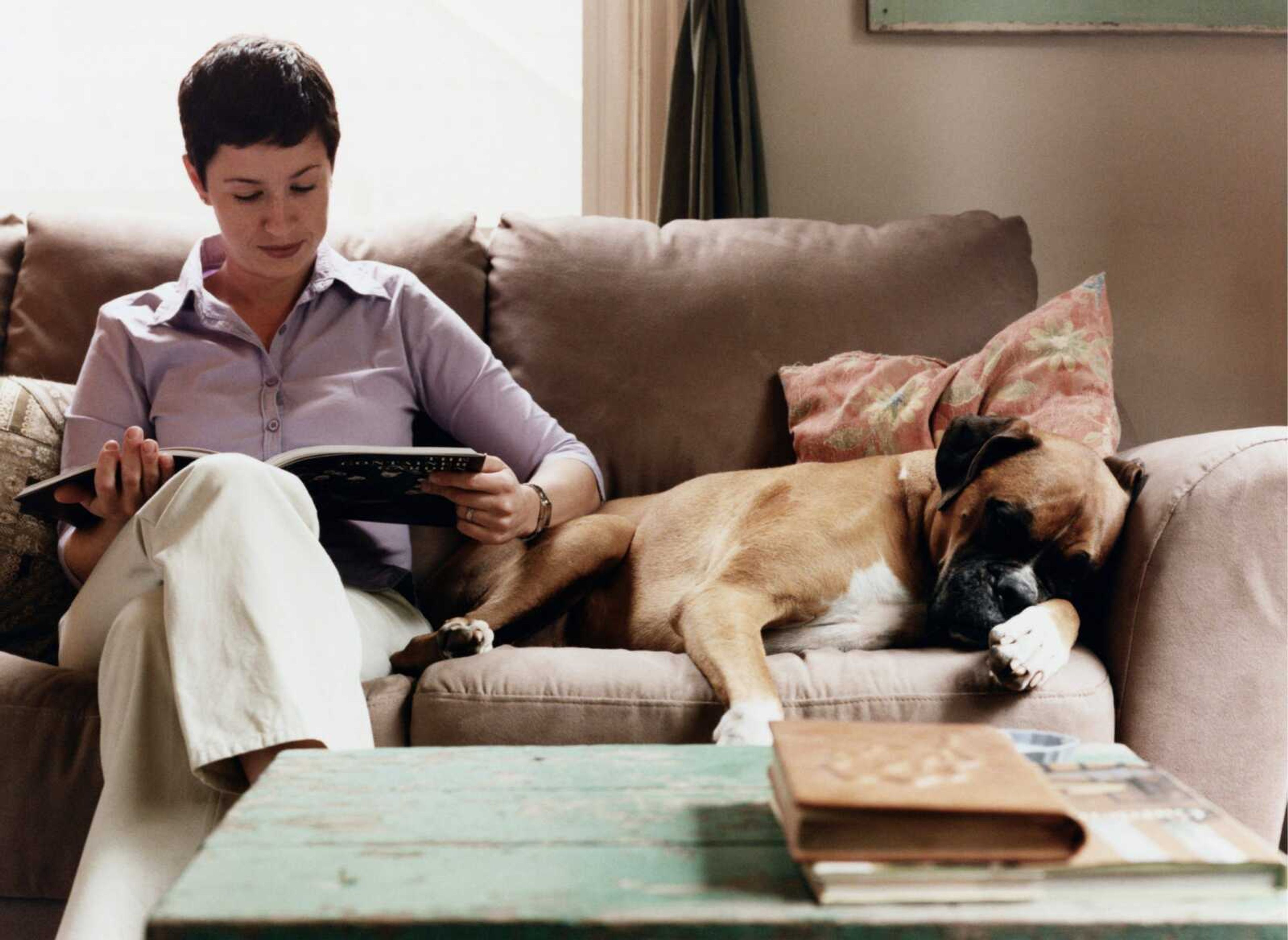Overweight, obesity cause problems for our pets, too
The causes of obesity in pets are similar to those in humans: Overeating and lack of exercise. Dr. Wanda Pipkin, a veterinarian at Deer Ridge Animal Hospital in Jackson, said according to a study done by the American Veterinary Medical Association, 54 to 56 percent of dogs and cats are overweight or obese. Out of these numbers, 20 percent of dogs are obese and 22 percent of cats are obese...
The causes of obesity in pets are similar to those in humans: Overeating and lack of exercise.
Dr. Wanda Pipkin, a veterinarian at Deer Ridge Animal Hospital in Jackson, said according to a study done by the American Veterinary Medical Association, 54 to 56 percent of dogs and cats are overweight or obese. Out of these numbers, 20 percent of dogs are obese and 22 percent of cats are obese.
"Based on the animals we see, I would have guessed it was higher," Pipkin said.
Dr. Christi Foutz, veterinarian at Skyview Animal Clinic in Cape Girardeau, said body condition scoring is used to determine if an animal is overweight or obese. She uses a scale from one to nine, with a score of four to five being a normal weight. A score of six to seven is considered overweight and a score of eight to nine is obese.
Foutz said that while both overfeeding and lack of exercise contribute to obesity, overfeeding is the main cause.
"I have clients that actually want to feed their pets three meals a day," Pipkin said. Dogs should only be fed once or twice a day, she said, and most dogs do well on once-a-day feedings.
"Usually, in the wild, canines may not eat every day," Pipkin said.
In order to get a dog back to a normal weight, Pipkin recommended feeding them a particular portion a day and watching the treats, as they can be high in salt and fat. For example, she said Milk-Bones can contain anywhere from 20 to 60 calories per bone.
"The very first thing I tell owners is to cut out anything extra," Foutz said.
Foutz also said to cut a pet's regular dog food back by 25 percent and increase the amount of exercise the pet gets.
"Many studies have shown that when an owner and dog are on a weight loss program together, the success in owner and dog goes up quite a bit," Foutz said.
Pipkin and Foutz both said vegetables, such as green beans or carrots, could be used as replacement treats.
"There are a lot of different vegetables dogs eat as treats," Foutz said. "They are a lot healthier and lower in calories than the treats you pick up at the local pet store."
Foutz said she sees a large number of overweight cats. However, the situation is a different with cats. For example, cats do not eat treats as much as dogs, and their owners often leave their food out all the time. Pipkin described cats as "nibblers."
"Invariably, if a cat has food left out, they are going to get overweight," Foutz said.
To help a cat return to a normal weight, Foutz recommends that owners measure their food.
"Once they finish, that is all they get for the day," Foutz said. "It they are still gaining weight, cut it back even further."
Overall, Pipkin said the solution to pet obesity is to know what they are eating and how to change it. For those who insist on feeding their pets food from the table, she said to give them the food before it has been salted or buttered.
According to Dr. Ann Seabaugh, veterinarian at LaCroix Pet Hospital in Cape Girardeau, there are also prescription weight loss diets for dogs and cats available from Eukanuba, Science Diet and Royal Canin. Slentrol, a prescription weight loss medicine for dogs, can also be used. This medicine blocks fat absorption and reduces appetite. However, Seabaugh said if this medicine is not used with the correct diet it can have side effects.
"It's not the magic medicine," Seabaugh said.
The side effects of obesity in pets are similar to those in humans: Diabetes, high blood pressure, tendon damage, pancreatitis and heart, liver and kidney disease. In addition, Pipkin said some forms of cancer are linked to obesity.
"A number of health problems can be related to extra fat," Foutz said. "Fat cells secrete enzymes that are detrimental to the body."
Foutz said the most common side effect of obesity that she sees is arthritis. These enzymes can cause arthritis to become more advanced.
According to Pipkin, allowing a pet to maintain its obesity and not doing something to correct it can take two and half years off the animal's life expectancy.
"We feed our pets because we love them," Pipkin said. "But sometimes we love them into an early grave."
Connect with the Southeast Missourian Newsroom:
For corrections to this story or other insights for the editor, click here. To submit a letter to the editor, click here. To learn about the Southeast Missourian’s AI Policy, click here.










